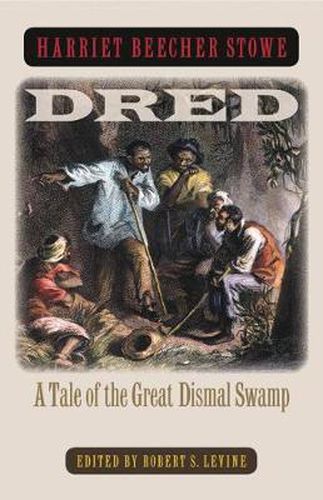Readings Newsletter
Become a Readings Member to make your shopping experience even easier.
Sign in or sign up for free!
You’re not far away from qualifying for FREE standard shipping within Australia
You’ve qualified for FREE standard shipping within Australia
The cart is loading…






Harriet Beecher Stowe’s second antislavery novel was written partly in response to the criticisms of
Uncle Tom’s Cabin
(1852) by both white Southerners and black abolitionists. In
Dred
(1856), Stowe attempts to explore the issue of slavery from an African American perspective. Through the compelling stories of Nina Gordon, the mistress of a slave plantation, and Dred, a black revolutionary, Stowe brings to life conflicting beliefs about race, the institution of slavery, and the possibilities of violent resistance. Probing the political and spiritual goals that fuel Dred’s rebellion, Stowe creates a figure far different from the acquiescent Christian martyr Uncle Tom. In his introduction to the classic novel, Robert S. Levine outlines the antislavery debates in which Stowe had become deeply involved before and during her writing of
Dred . Levine shows that in addition to its significance in literary history, the novel remains relevant to present-day discussions of cross-racial perspectives.
$9.00 standard shipping within Australia
FREE standard shipping within Australia for orders over $100.00
Express & International shipping calculated at checkout
Harriet Beecher Stowe’s second antislavery novel was written partly in response to the criticisms of
Uncle Tom’s Cabin
(1852) by both white Southerners and black abolitionists. In
Dred
(1856), Stowe attempts to explore the issue of slavery from an African American perspective. Through the compelling stories of Nina Gordon, the mistress of a slave plantation, and Dred, a black revolutionary, Stowe brings to life conflicting beliefs about race, the institution of slavery, and the possibilities of violent resistance. Probing the political and spiritual goals that fuel Dred’s rebellion, Stowe creates a figure far different from the acquiescent Christian martyr Uncle Tom. In his introduction to the classic novel, Robert S. Levine outlines the antislavery debates in which Stowe had become deeply involved before and during her writing of
Dred . Levine shows that in addition to its significance in literary history, the novel remains relevant to present-day discussions of cross-racial perspectives.